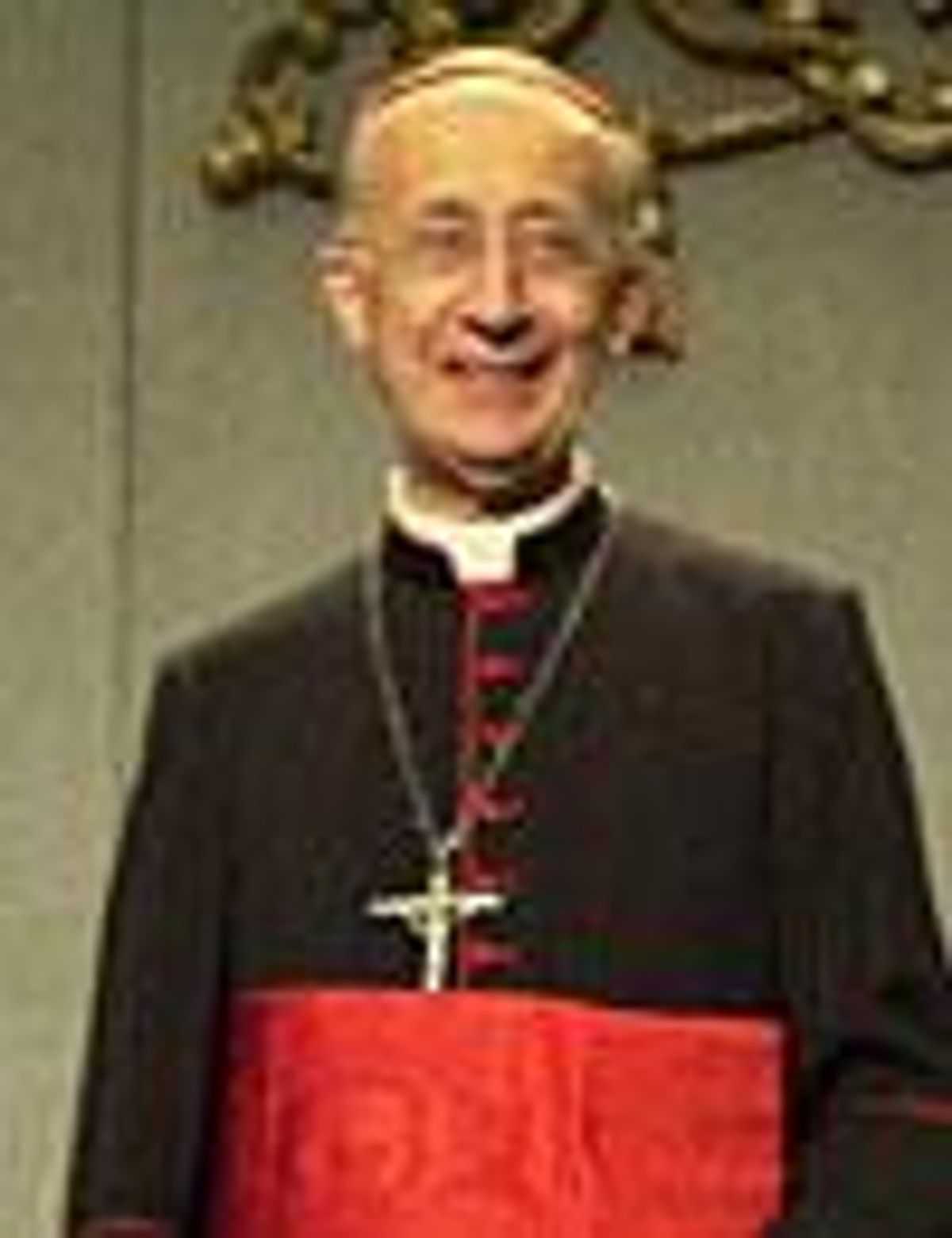When Italy's most
influential cardinal received an award recently, he was
heckled by a group of students opposed to his stand against
full legal rights for unmarried couples. "Shame!
Shame!" the students shouted at Cardinal Camillo
Ruini, holding up posters reading "Free love in a free
state" and "We're all homosexuals."
It was a remarkable display--not just
because cardinals are rarely booed in Italy. The
students' anger was a measure of how the Roman Catholic
Church has regained its role as a powerful force in Italy's
political debate, weighing in on hot campaign issues
and forcing politicians to take a stand ahead of
general elections next year. "Certainly it is one of
the periods of maximum mobilization of the church," Vatican
expert Andrea Tornielli said Monday. "I believe the church
is worried that the traditional family based on
marriage is attacked and weakened through legislation."
The Roman Catholic Church in Italy kept a lower
profile after the Christian Democrats, with whom the
Vatican had close ties, collapsed under the corruption
scandals of the early 1990s. But a successful campaign
asking Italians to boycott a referendum on easing assisted
fertility restrictions in April appears to have emboldened
the bishops, analysts say. "The referendum gave Ruini
the belief that he had more sway over public opinion
than even he imagined," said Giuseppe Alberigo, a
church historian.
In one of his first acts in office, Pope
Benedict XVI acknowledged the secular nature of the
Italian state during a visit with the Italian
president. But he also made it clear during the June 24
visit that that wouldn't stop the Catholic Church from
intervening in ethical matters or issues that deal
with man's "eternal destiny."
Ruini, Benedict's vicar for Rome, seems to have
taken that message to heart. During a speech last
week, the cardinal, who is also the head of the
Italian Bishops' Conference, discussed the upcoming Italian
budget, the state of the school system, and even the
fate of Italy's embattled central bank governor.
But most significantly, he chimed in on the
hottest issue of the day, saying that giving full
legal recognition to unmarried couples would represent
an "eclipsing of the nature and value of a family and a
very grave harm to the Italian people." Although he did
suggest that common-law norms might offer some
protections, opponents seized on what they saw as
unwarranted interference by the church in domestic affairs.
"The bishops' conference is the most powerful, listened-to,
courted--and feared--lobby on the political
scene," La Repubblica, a left-leaning Rome daily,
said in a recent editorial.
The Vatican's influence in Italy is long
established and seems to endure even as citizens have
strayed from church doctrine--notably by approving
divorce and abortion in referendums decades ago--and
the country, like the rest of Europe, has become ever
more secular. More than 90% of Italy's 58 million
citizens are, at least nominally, Catholic.
But just how that influence will play out in
general elections pitting Premier Silvio Berlusconi's
conservative coalition against the center-left
alliance remains to be seen. Ruini said the Italian church
would take no political sides and limit itself to "calling
everybody's attention, and especially that of believers, to
the principles and criteria of the Catholic Church's
social teaching." But La Repubblica said,
"Nobody can afford to openly oppose the episcopal hierarchy."
Romano Prodi, the center-left leader expected to
challenge Berlusconi at next year's vote, got a taste
of that in recent days. His proposal to give legal
recognition to unmarried couples stirred the angry reaction
of the Vatican, whose daily newspaper,
L'Osservatore Romano, described the idea as
an attempt to tear apart Italian families in exchange
for votes. Prodi quickly clarified his position,
saying he never supported same-sex marriage. (AP)














































































